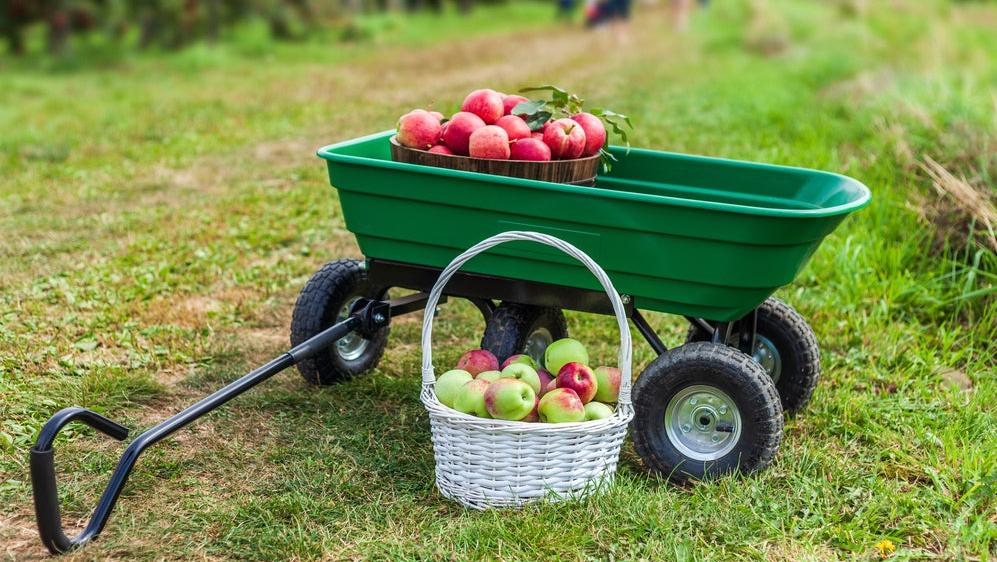What To Know Before You Buy From A Fruit Truck
Some things to keep in mind if a cute mobile fruit cart rolls into town.
Ten years ago, The Peach Truck got its start. Launched by Stephen and Jessica Rose, the Nashville-based company began as a way to feed his longing for juicy Georgia peaches, versus the flavorless ones they found in grocery stores. They drove to Georgia, loaded up a Jeep Gladiator with fruit, and sold 10 tons in their first five weeks.
Now, The Peach Truck is a big business, bringing top quality peaches at the height of the Southern season to people in 25 places—or as the Roses call them, "tours." They've branched into other types of fruit, and have also spawned imitators.
This fall, I got emails from The Apple Truck, a Michigan company that's bringing its apples, as well as cider and nut mixes, on an eight-state tour. Clearly, the concept of trucking peak-season fruit across the country is flourishing. But there are some things to keep in mind before you buy.
Do you have a local source for your fruit?
Michigan is known for its Fruit Belt on the western side of the state, whose farmers bring peaches, apples, and other produce to markets in Wisconsin, Chicago, Indiana, Michigan, and Ohio. While you're supporting the local growers who supply the big trucks, you might want to weigh whether you'd be better off boosting businesses closer to home. Yes, fruit seasons might start later 500 miles away, but things will ripen there, too.
How much fruit can you eat?
This fall, The Peach Truck is selling a 22-pound box of apples. The precise number of apples varies depending on variety, but if you figure that an apple weighs 8 ounces, that's several dozen apples. In 2021, we ordered a box of the company's satsuma oranges and wound up with multiple dozens. The fruit is ripe and ready to eat. If you eat a lot of fruit, the boxes will suit you and your family, but if you're only one person, you could be better off finding a source that lets you buy in smaller quantities.
Can you fit the fruit delivery into your schedule?
When you order fruit, you pick a location, like a shopping mall or restaurant parking lot, and pre-pay for your purchase. The trucks send you a pickup time, usually a window of a couple of hours, and they stress that you need to be there during that time. There's no way to get your fruit after the truck pulls away. The companies ask anyone who misses the truck to contact them. Alternatively, they do offer home delivery on some items and to some areas. It's free from the Peach Truck on orders over $99 (where available).
How much are you willing to invest in quality fruit?
That 22-pound box of Peach Truck apples costs $48. The Apple Truck charges the same amount for the same size box, although you can order a 12-pound box of Honeycrisp Apples, a sweet early variety, for $46. Compare these prices to those at your local farmer's market or produce store to see if that's in the ballpark for your area (keeping in mind that quality will always cost a little more).
What can you do about bad fruit?
The Peach Truck says that if there's ever a problem with its fruit, "we'll make it right," although it doesn't specify whether that's in the form of replacement fruit or a refund. In the fine print on its website, The Apple Truck asks consumers who have a quality issue to get in touch within 30 days, but it cannot accept returned fruit.
This produce truck model is flourishing because enough consumers have determined that flavorful, peak-season fruit is worth the investment of extra time and money. By asking yourself the above questions, you'll be able to determine whether you're one of them.
